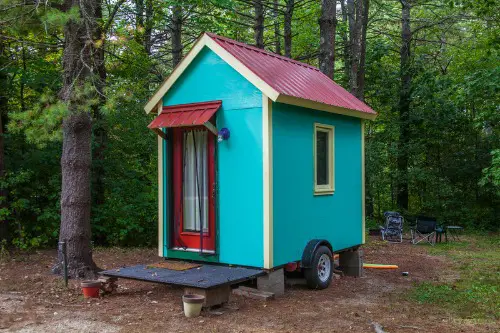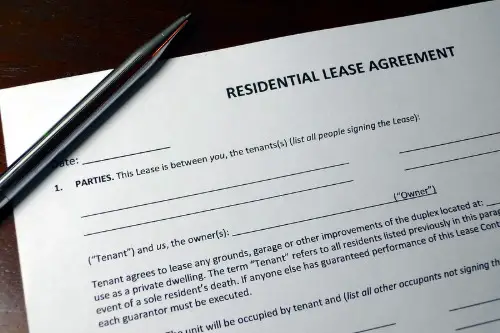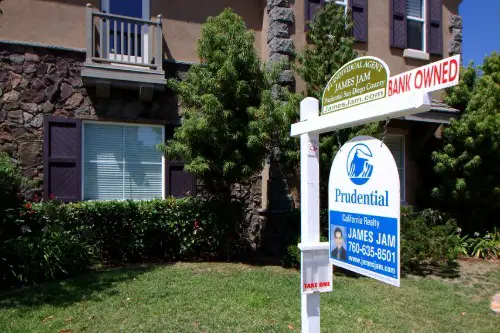1. Tiny Homes on Wheels

Living tiny is romanticized on Instagram, but tiny homes on wheels often aren’t classified as legal residences. That means they can’t be insured the way a traditional home can, and many cities won’t let you park them permanently on residential lots. People are sold on the minimalist dream, but zoning laws quickly bring that dream crashing down. Even utilities like water and electricity can be hard to set up legally.
What’s more, resale value is usually terrible—these aren’t investments, they’re depreciating assets. And unlike RVs, tiny homes don’t always meet highway safety codes, making them risky to transport. If the city decides your setup isn’t allowed, you could be forced to move with almost no notice. It’s a hack with a ticking clock.
2. Buying Sight Unseen

With online listings and virtual tours, some buyers are skipping in-person viewings entirely. That might work for seasoned investors, but it’s dangerous for everyday buyers. You can’t smell mildew or feel uneven floors through a Zoom call. And agents might conveniently angle photos to hide that leaky ceiling.
There are also legal risks when buying this way. You could end up with serious issues like structural damage or illegal additions that only an inspector would catch in person. Sellers might even be banking on the fact that you’re not going to look too closely. It’s not savvy—it’s risky.
3. Rent-to-Own Agreements

Rent-to-own sounds like a dream for people who can’t qualify for a mortgage—but the reality can be more like a nightmare. These agreements often come with inflated prices, high rent, and clauses that forfeit your investment if you miss a single payment. You’re usually responsible for repairs too, which is weird when you don’t actually own the place. A lot of people think they’re working toward ownership, but legally, they’re often just renting with extra steps.
On top of that, many of these deals aren’t regulated in the same way as traditional home purchases. That means fewer protections if something goes wrong or if the landlord sells the property out from under you. It might feel like a clever workaround, but you’re often just throwing money at a house you might never own. The risk usually outweighs the reward.
4. House Hacking with Multiple Roommates

“House hacking” sounds smart—buy a property, live in one part, and rent the rest. But when you fill your house with random roommates to cover the mortgage, things can get messy fast. You’re now both landlord and housemate, and that’s a recipe for drama. If someone stops paying rent, you’re still on the hook with the bank.
In many cities, having more than a certain number of unrelated people under one roof actually violates zoning laws. And your homeowner’s insurance might not cover you if you’re running what’s essentially a boarding house. Plus, constant tenant turnover means you’re always managing leases and maintenance. It’s more work than people expect—and less profit.
5. Living in Converted Commercial Spaces

Lofts in old warehouses or former office spaces look edgy and cool. But many of these “residential conversions” are done without proper permits. That means you might not have insulation, fire exits, or even working plumbing up to code. The aesthetic is industrial chic, but the reality is often legally and physically unsafe.
Insurance companies may deny coverage, and banks might refuse to finance them altogether. In case of a fire or injury, you could be left holding the bag. And if the city finds out about the illegal conversion, you could be fined—or worse, evicted. It’s a hack that can backfire hard.
6. Skipping Inspections to Win a Bid

In hot markets, skipping a home inspection can help your offer stand out—but it’s a huge gamble. Sellers love it because it means they’re off the hook if anything’s wrong. But you could move in and discover major issues, from termites to a busted foundation. And once the deal is closed, it’s all yours to deal with.
This trend became especially common during the post-pandemic housing frenzy. But many buyers later regretted it when they faced surprise repair bills in the tens of thousands. A competitive offer isn’t worth draining your savings a month later. It’s a shortcut that too often leads straight to disaster.
7. DIY Additions Without Permits

Doing your own home improvements can save money, but adding a deck or finishing a basement without a permit is risky. If the city finds out, they can force you to tear it down or bring it up to code at your own expense. And unpermitted work is a huge red flag when it comes time to sell. Most buyers don’t want to inherit your legal headaches.
Unpermitted additions can also void your homeowner’s insurance if something goes wrong. And lenders may balk at refinancing if your square footage doesn’t match legal records. It’s the kind of hack that can haunt you years later. Saving a few bucks upfront just isn’t worth it.
8. Buying with a Friend or Sibling

Pooling resources to buy a house with a friend or sibling sounds like a smart move in an expensive market. But without a legal agreement in place, things can go sideways fast. What happens if one person wants to sell and the other doesn’t? Or if someone stops paying their share?
You’re essentially entering into a financial marriage—with none of the legal protections. If the relationship sours, you might have to go to court to sort it out. And breaking up a co-ownership is usually harder than just selling a home solo. It’s more drama than most people bargain for.
9. Moving to the “Middle of Nowhere” for Cheap Land

Sure, land is cheaper in rural areas, but people often underestimate the trade-offs. You might be hours from hospitals, schools, and grocery stores—not to mention reliable internet. Building codes can be stricter than you’d expect too, especially when it comes to septic systems or well water. What looks like freedom can quickly feel like isolation.
Plus, remote properties can be incredibly hard to sell later on. As infrastructure changes or climate risks increase, the value may go down instead of up. You’re not just buying land—you’re buying into a lifestyle that might not work long-term. It’s a trendy escape plan, but not always a sustainable one.
10. Airbnb Arbitrage

This one’s all over TikTok—rent a home long-term, then re-rent it short-term on Airbnb for a profit. But cities across the U.S. are cracking down on this practice with new short-term rental laws. In many places, it’s now illegal without a license, and getting one isn’t easy. Landlords are also getting wise and adding lease clauses to block it.
If you’re caught, you could be evicted or fined. And if guests trash the place, you’re still responsible to the actual owner. What sounds like passive income is often a high-risk hustle. It’s a “hack” that can leave you with legal trouble and no backup plan.
11. Buying in HOAs to “Protect Value”

People often think that buying in a homeowners association (HOA) guarantees stability. But HOAs have a lot of power—they can fine you, place liens on your home, or even foreclose if you don’t pay fees. Many buyers are shocked by how strict the rules are, from paint colors to pet limits. It’s less freedom than most people realize.
Plus, HOA fees can skyrocket over time, especially if there’s a big repair project like roof replacements. And if you want to rent your home out later, you might not be allowed to. That “protected value” can feel more like a straitjacket. It’s not always the safety net it’s marketed to be.
12. Buying a Foreclosure for a Bargain

Foreclosures are tempting because they often come below market value. But they’re usually sold “as-is,” which means you’re responsible for all the hidden issues—of which there are often many. Mold, pests, broken plumbing—it’s all fair game. And if the home’s been vacant for a while, the damage can be extensive.
On top of that, the buying process is complicated, with long wait times and unpredictable timelines. You often need to pay in cash or with special financing, which can limit your options. The savings can vanish quickly once the repair bills start rolling in. It’s a deal that can easily become a money pit.
This post 12 Housing “Hacks” Trending Right Now That Are Actually Red Flags was first published on American Charm.


